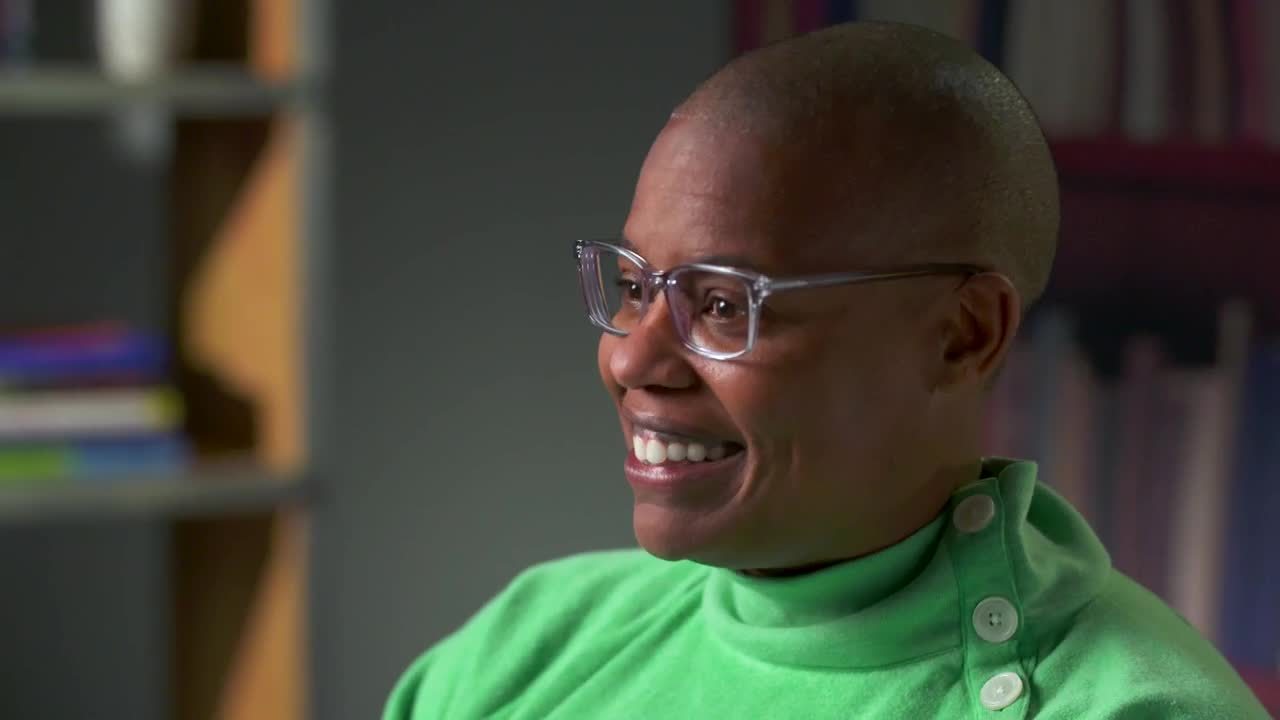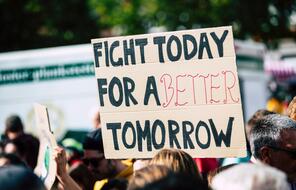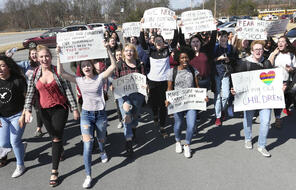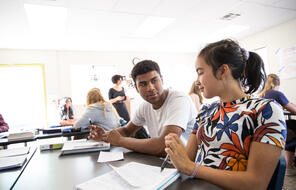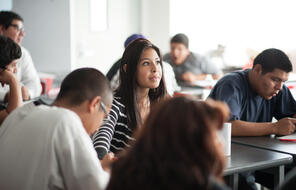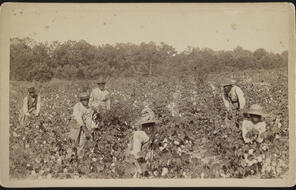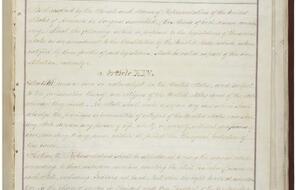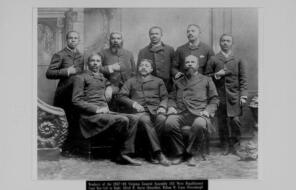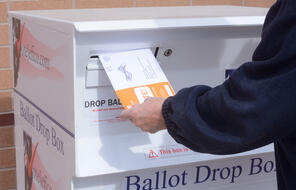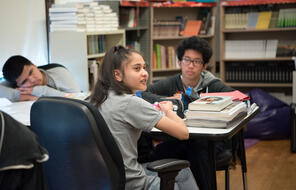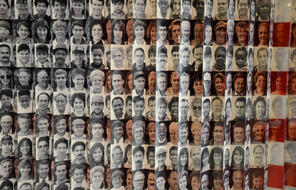KIM PARKER: I grew up on a farm in Kentucky, and raised by my grandparents who always encouraged me to read whatever I wanted. I came of age through books, really. There was no particular title I think that sticks out as the text that sort of changed my life or made coming of age for me. But I think what did really make it was the experience of being able to read in all of these different ways.
I was not limited by, this is what you have to read. I had grandparents who just said, read, really, all you want. And so I was able to follow my interest. I think that books find you when you need them most. And so I'm sure all the books that I read allowed me to be able to really think about who I was at the time, who I was becoming at the time, what I needed to read to be able to see that person.
Really, in the same way kids need that freedom. This is the beauty of having so many books or being in a world where there are lots of books, and that we never know what book is going to work for what kid.
When I became a teacher, I was really interested in why kids weren't reading, and sort of came to understand that. It's because we don't necessarily construct environments where they get to read what they want, where they see themselves reflected in the books, and they don't have time to talk about it. And so over the years that's what I've been doing is trying to really make my classroom those spaces, and now much more working with teachers to think about how do you create those spaces, these intentional literacy communities where kids can thrive and really have great literacy lives.
I think choice is really important, particularly for kids who never get choices. I mean, I think that what I know about working with young people, particularly Black and other kids of color, is that they don't get a lot of choice. And so they're reading sort of the same books all the time.
You don't have to necessarily start with an entirely different collection. But if you know that books are harmful for kids, if you know that they are not resonating with kids, then you can change it. And start with that text. I would say to start with that one, and then to build your classroom library. It would be great if kids had the access to books that they want to read. Not books that we think they should read, but books they want to read, and we would know that by asking them and then go from there.
It doesn't have to be this huge overwhelming thing, which I think then makes us not want to do anything. But if we just say, OK, what's the one text out of my core text, if we're doing that, that I need to change? Change that, build your classroom library, and then go from there. And then keep going.
And I think that we need to think about who are the people we want them to be. I want them to be people who love reading. And people are like, you have an agenda. I definitely have an agenda. My agenda is that I want kids to love reading.
So you can't necessarily become a reader if you don't have the time and space to read, and to not like books. To read things and be like, this isn't for me, let me pick something else. And so it's just that.
It's the constant sort of access to books. It's the ability to see yourself reflected, it's the ability to have a conversation with someone, to be in a community of literate folks that we don't necessarily give all kids in ways that we know, research tells us that that's what they need to thrive.
Ultimately I want every child, every student when they leave me to have had a positive experience with literacy. And can see themselves as readers or have reconnected to their reading lives. They're all readers. I think what we have to ask as teachers is if they're not reading for us, then we have to figure out what's going on there.
I never blame the kids. Something has happened to them that makes reading not pleasurable. And so I always think I love that. I love a good challenge. I'm going to reconnect you through books. I'm a book pusher.
